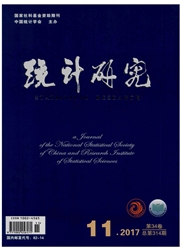

 中文摘要:
中文摘要:
世界产业发展史表明,当一国进入工业化中后期,随着生产效率大幅提升,其产业结构演变亦呈现出明显的去工业化特征。以工业化国家为参照,现阶段我国人均收入远未达到工业化国家去工业化时的水平,此时收缩工业产出和就业规模,可视为一种被动去工业化,客观上不利于服务业效率的提升。本文利用2005--2014年我国制造业和服务业数据估计了去工业化对服务业效率的影响。在控制住市场结构和所有制结构等因素的影响后,研究结果显示:①去工业化与服务业效率之间呈现负相关关系;②去工业化通过提高劳动力成本对传统服务业效率产生负效应;③去工业化通过削弱制造业对服务业的有效需求从而不利于生产性服务业效率的提升。
 英文摘要:
英文摘要:
According to the industry development history worldwide, there is an obvious deindustrialization when an economy entered into the mid- and late- period of industrialization because of improved manufacturing efficiency. Compared with industrialized countries, the proportion of output and employment of manufacturing are decreasing when China' s per capita GDP is much lower than industrialized countries, which is defined as passive deindustrialization in the paper. Passive deindustrialization maybe has negative effect on the efficiency of service sectors. Using dataset of China' s manufacturing and service sectors during 2005--2014, the paper analyzes the impact of deindustrialization on the TFP of service sectors. After the influence of market structure and ownership has been controlled, the result shows: (1) there' s a negative relationship between deindustrialization and service TFP; (2) deindustrialization has a negative effect on transition service sectors through increasing their labor costs; (3) deindustrialization has a negative effect on producer service sectors through weakening the demand of manufacturing for services sectors.
 同期刊论文项目
同期刊论文项目
 同项目期刊论文
同项目期刊论文
 期刊信息
期刊信息
